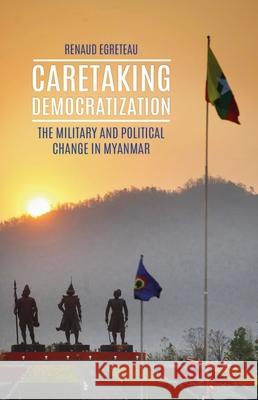Caretaking Democratization: The Military and Political Change in Myanmar » książka
Caretaking Democratization: The Military and Political Change in Myanmar
ISBN-13: 9780190620967 / Angielski / Twarda / 2016 / 224 str.
This book examines the political landscape that took shape in Myanmar after the 2010 elections and the subsequent transition from direct military rule to a quasi-civilian 'hybrid' regime. Striking political, social, and economic transformations have indeed taken place in the long-isolated country since the military junta was disbanded in March 2011. To better construe - and question - what has routinely been labelled a 'Burmese Spring', Egreteau examines the reasons behind the ongoing political transition, as well as the role of the Burmese armed forces in that process, drawing on in-depth interviews with Burmese political actors, party leaders, parliamentarians and retired army officers. The study also takes its cue from comparative scholarship on civil-military relations and post-authoritarian politics, to look at the 'praetorian' logic explaining the transitional moment. Myanmar's road to democratic change is, however, still paved with daunting obstacles. As the book suggests, the continuing military intervention in domestic politics, the resilience of bureaucratic, economic and political clientelism at all levels of society, the iconification of Aung San Suu Kyi, the shadowy influence of regional and global powers, as well as enduring concerns about interethnic and interreligious relations, all are strong reminders of the series of elemental conundrums with which Myanmar will have to deal in order to achieve democratization, sustainable development and peace.











